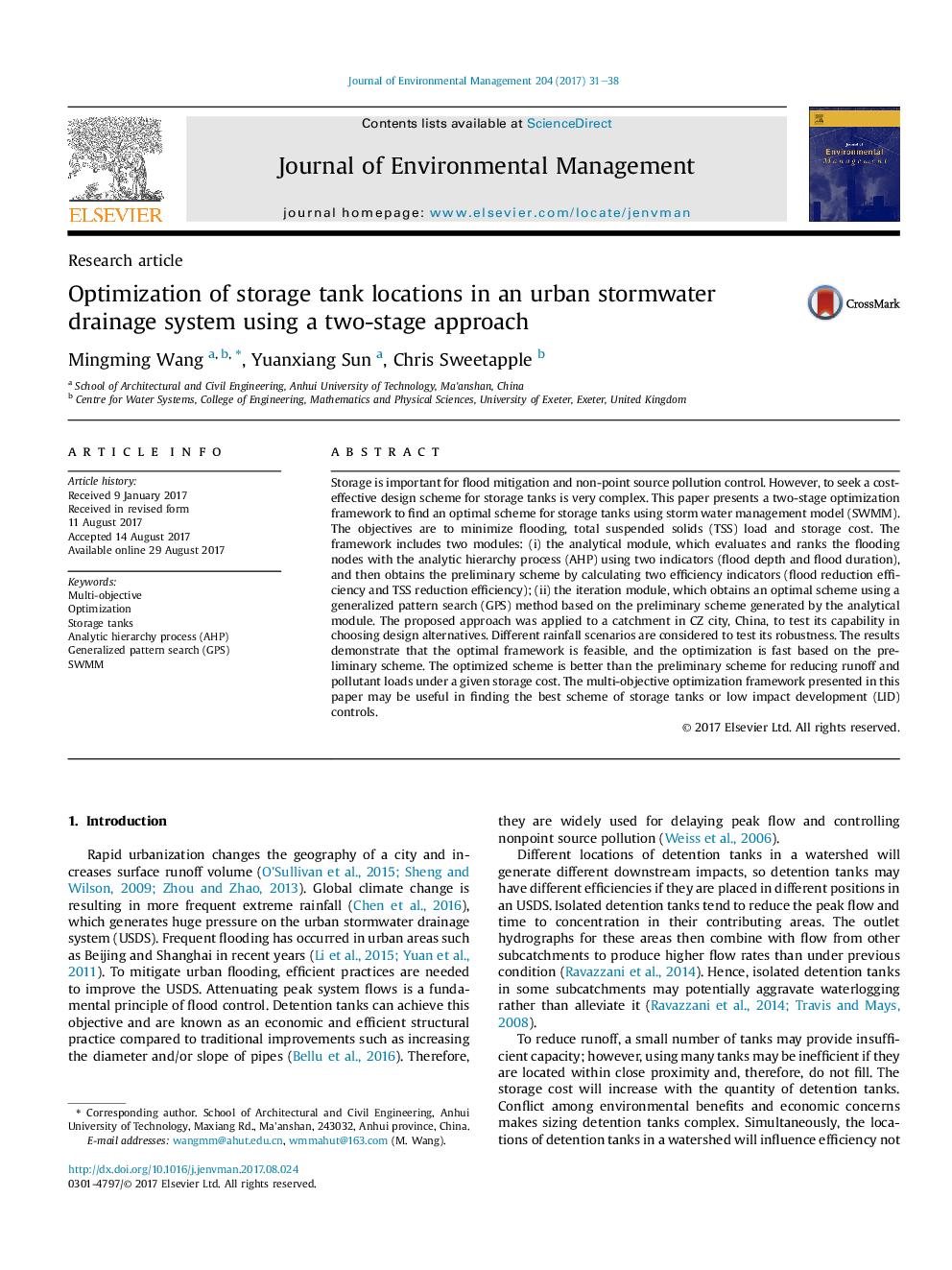| Article ID | Journal | Published Year | Pages | File Type |
|---|---|---|---|---|
| 5116240 | Journal of Environmental Management | 2017 | 8 Pages |
â¢Scientific methods for choosing reasonable candidates before optimization needed.â¢Framework of two-stage optimization to find an optimal scheme is presented.â¢Objectives are to minimize flooding, total suspended solids (TSS) load and storage cost.â¢Preliminary scheme was based on AHP and flood and TSS reduction efficiency.â¢Generalized pattern search (GPS) method was used for optimization.
Storage is important for flood mitigation and non-point source pollution control. However, to seek a cost-effective design scheme for storage tanks is very complex. This paper presents a two-stage optimization framework to find an optimal scheme for storage tanks using storm water management model (SWMM). The objectives are to minimize flooding, total suspended solids (TSS) load and storage cost. The framework includes two modules: (i) the analytical module, which evaluates and ranks the flooding nodes with the analytic hierarchy process (AHP) using two indicators (flood depth and flood duration), and then obtains the preliminary scheme by calculating two efficiency indicators (flood reduction efficiency and TSS reduction efficiency); (ii) the iteration module, which obtains an optimal scheme using a generalized pattern search (GPS) method based on the preliminary scheme generated by the analytical module. The proposed approach was applied to a catchment in CZ city, China, to test its capability in choosing design alternatives. Different rainfall scenarios are considered to test its robustness. The results demonstrate that the optimal framework is feasible, and the optimization is fast based on the preliminary scheme. The optimized scheme is better than the preliminary scheme for reducing runoff and pollutant loads under a given storage cost. The multi-objective optimization framework presented in this paper may be useful in finding the best scheme of storage tanks or low impact development (LID) controls.
Graphical abstractDownload high-res image (360KB)Download full-size image
